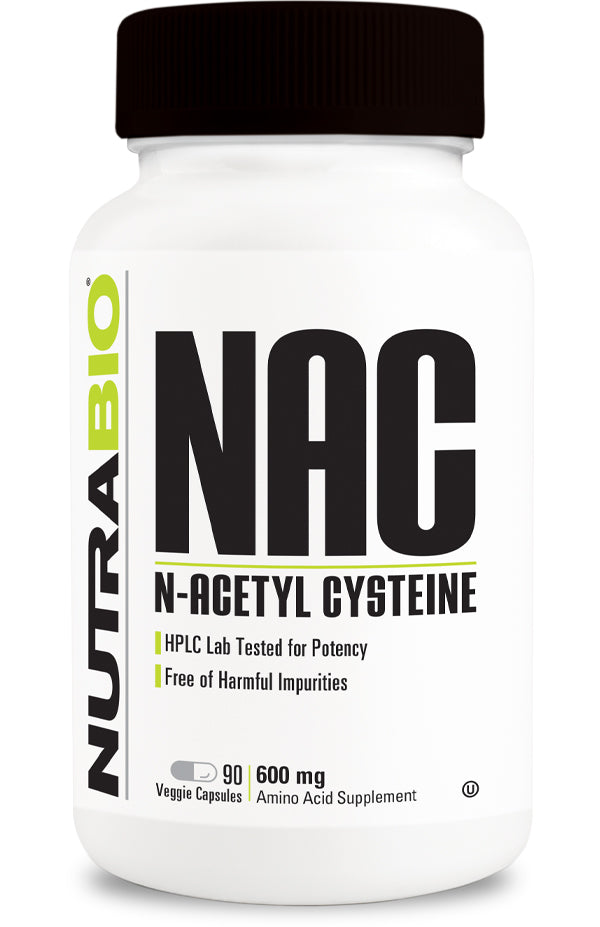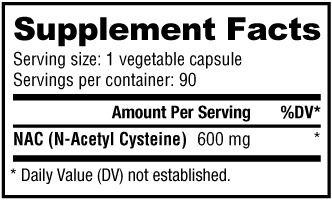

NutraBio N-Acetyl-Cysteine (NAC) (600 mg)
Benefits of NutraBio N-Acetyl-Cysteine (NAC) (600 mg)
- Neutralizes Toxins
- Promotes Healthy Liver Function
- Powerful Anti-Oxidant
- Boosts glutathione
N-Acetyl-L-Cysteine (NAC) is a more stable form of the amino acid L-Cysteine and is the most effective way to boost Glutathione levels in the body. NAC is a more stable form of L-Cysteine because it has an acetyl group (CH3CO) attached. NAC has all the properties of L-Cysteine but is more water soluble and said to be more bio-available than L-Cysteine.
NAC naturally stimulates glutathione, an antioxidant enzyme. People who have autoimmune problems are often deficient in glutathione. A recent study was conducted in which most of the subjects were over 65. Results showed that only 29 percent of those taking NAC developed flu symptoms, compared to 51 percent of those who took the placebo.
NAC makes up Glutathione, a critical antioxidant scientifically proven to scavenge free radicals. NAC has the unique ability to maintain healthy lung tissue, support the body's natural defenses and enhance cellular health and longevity. These qualities make NAC especially beneficial for active people, the elderly and those exposed to polluted environments.
What makes NAC so effective as a glutathione booster is the fact that it is a stable amino acid that can retain up to six times the amount of the sulfur and sulfhydryl groups after digestion. Scientists believe that sulfur and sulfur compounds may be central to glutathione. This is crucial for the body's life functions, as NAC helps the body neutralize toxins, heavy metals, such as mercury from dental amalgam fillings, cadmium and lead from paint and cigarette smoke. The Sulfhydryl balance has also been linked to enhance resistance to viral infections.
N-Acetyl-L-Cysteine (NAC) provides powerful immune support and also packs a powerful anti-toxin potential. Its ability to neutralize cell and DNA damaging free radicals can help slow down what many
NAC has been shown to play a protective role against a variety of toxic hazards such as cigarette smoke, auto exhaust, certain herbicides, and overdoses of acetaminophen. It can also play a beneficial role in prostate and respiratory conditions. For example, NAC has well established anti-mucolytic (anti-mucous) properties and has been shown to increase mucocilary transport in smokers.




